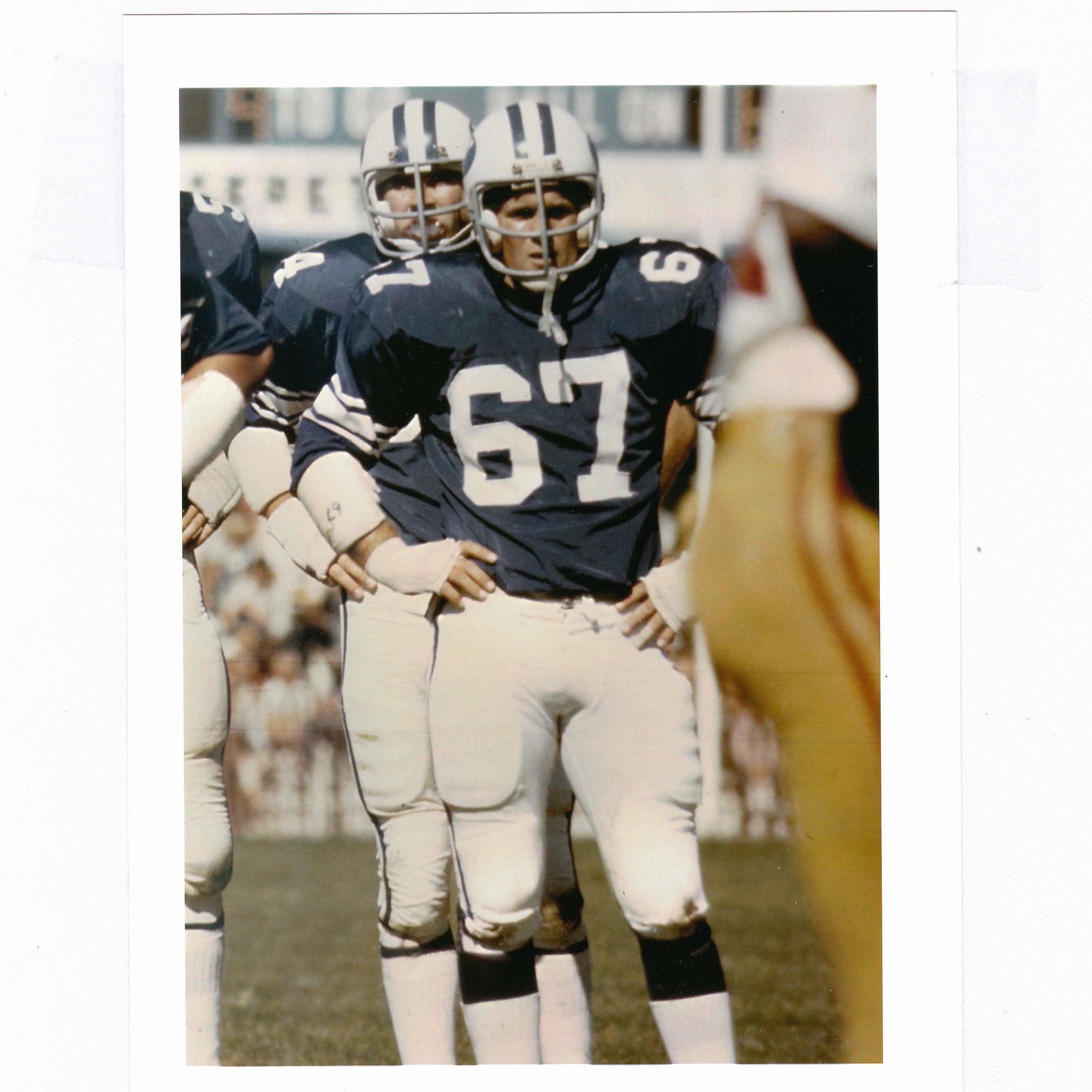“I can’t stop weeping – couldn’t go into the post office. He (Larry) had to go in even though his hip hurts. Why can’t I just ignore this? Why is this so hard for me to deal with? Is it because we are on a mission and I expected it to be peaceful and happy, and it is anything but. My life has become a minefield. I am always trying to dodge the explosions. When Larry got back into the car, I looked at him and still crying said, “I thought it was going to be different.”
This journal entry is really hard for me to read. In fact, I don’t even remember writing it, but it sums up rather perfectly my experience dealing with my husband’s symptoms of probable CTE as they progressively got worse. My husband was becoming impossible to live with. Everything I did and said was a problem for him. I felt like I was walking on eggshells trying not to upset him but never succeeding.
In January, almost 6 months before that journal entry, Larry wrote an email to Dr. Ann McKee at Boston University. She is a neuropathologist and expert in neurodegenerative disease at New England Veterans Administration Medical Centers and is Professor of Neurology and Pathology at Boston University School of Medicine and Director of Boston University CTE Center. We knew of her from the documentary “League of Denial.” She has examined over 500 brains of ex-football players and is one of the leading authorities on the subject. Larry didn’t know her personally, had never met her and had no letter of introduction. He was just desperate for answers; for help. In his email he explained our situation, told her we were in the Boston area for only a year or so and asked if we could meet with her. To our great surprise, she said yes, and with high hopes we went to see her.
Dr. McKee was gracious and kind and said right away that Larry’s symptoms sounded like what the families of deceased football players told her, but she reminded us that as of yet, there was no definitive test for the disease in the living and no treatment or cure. After speaking with us for over an hour, she told Larry that he looked good and sounded good and he should go and try to live his life the best he could. We left her office not much better off than when we arrived.
Not satisfied with her answers, a few weeks later we met with Dr. Robert Cantu, another prominent name in CTE research and Dr. McKee’s colleague. He had no solutions as well and we left his office feeling hopeless. As Larry’s symptoms continually got worse, and after one particularly awful night, he awoke early and wrote another email to Dr. McKee. He pleaded with her for any help she could offer. A few days later she emailed him back and said that there was a study at the Boston Veterans Administration in conjunction with Boston University using red and near-infrared light to treat returning Vets with traumatic brain injury (TBI). She suggested we go over there to see what they were doing. Dr. Margaret Naeser at the VA (Research Professor of Neurology Boston University School of Medicine) was having a lot of success using light to help alleviate the symptoms of TBI in returning Gulf War Vets and was anxious to try the same therapy on an ex-football player with possible CTE. To make a long story short, Larry qualified for the study, and so we began our journey into the world of photobiomodulation.
“Photobiomodulation involves the use of red or near-infrared light at low power densities to produce beneficial effects on cells and tissues.” (Hamblin, MIT) Photobiomodulation is used as a treatment for oral cancer, to speed the healing of bruises, and has been around for over 50 years. However, only in the last several years has an effective technology been developed that can deliver “light” directly to the cells of the brain. As part of Dr. Naeser’s research at the Boston VA, Larry was the first ex-football player to be studied extensively using this treatment and the results were nothing short of miraculous. To be continued…

I am so happy to hear about the help you are receiving from the light therapy. I read the story in the Deseret News with much interest. I received a concussion and cracked skull on Christmas Eve 2018. As a result I lost my sense of smell. I emailed the Doctors that worked with you in Boston to see if this therapy might work to repair or heal my sense of smell. ( I have realized how much I depended on that sense after loosing it ) The Doctors we’re interested in the possibility of it doing that. I asked them if there were any trials or studies in Utah. They said no. I didn’t want to purchase the machine without trying it first. Do you live in the Salt Lake area? Wondering about seeing your machine.
Thank you for sharing your story. ( I also have a grandson serving in the Boston Massachusetts Mission).
LikeLike